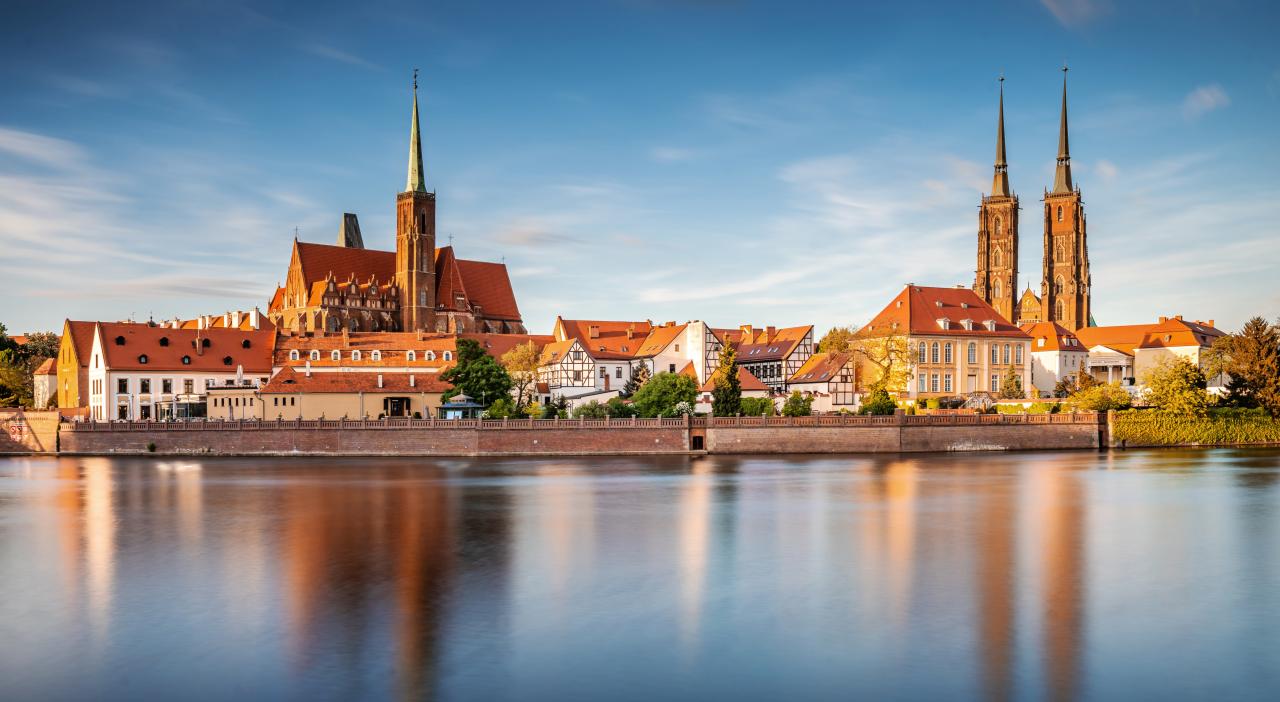The 2025 URBACT City Festival will provide a stage to celebrate 116 newly selected inspirational good practices, spark partnerships in anticipation of the call for URBACT Transfer Networks and share valuable insights on sustainable urban development.
The Wrocław connection: A city in transition
Nestled along the River Oder in southwest Poland, Wrocław is known for its bridges – not just literally (the city has around 100 bridges), but also figuratively; the city has always been a connector to other cities in Poland, Europe and beyond!
The city is densely populated, with over 640 000 inhabitants – making it the third city in Poland in terms of GDP per capita. Over a millennium, Wrocław has navigated the changing currents of monarchies and world wars, not to mention social, architectural and industrial transformation. Right behind Warsaw and Krakow, it has emerged as a major hub for Poland’s information and communication industry.
As is the case for many cities in Europe, Wrocław has grappled with the challenges of keeping up with the green and digital transitions and making the most of the city’s populated, green, agricultural or abandoned spaces. In turn, the city has embraced EU climate-neutrality targets, most notably as one of the 112 climate-neutral and smart cities supported by the EU Cities Mission and through collaborative sustainable urban development efforts with other European cities.
“Wrocław is a vibrant, artistic, beautiful city engaged in sustainable urban development through different URBACT networks over the years. During the URBACT City Festival, participants will not only discover Wrocław’s good practices, but they will have a full local experience with city visits and warm hospitality from locals and the city administration. You’ll have to be there to understand this!”– Jenny Koutsomarkou, Head of Unit, Knowledge & Communication, URBACT Joint Secretariat.
“We are extremely honored that during the Polish Presidency of the European Union, our city was chosen to host the URBACT City Festival. Our city is full of examples of the implementation of sustainable solutions, which we will be happy to share with all interested parties.” – Joanna Gańcza-Pawełczyk, Senior Specialist at the Revitalisation Unit of the Municipality of Wrocław and GreenPlace project coordinator.
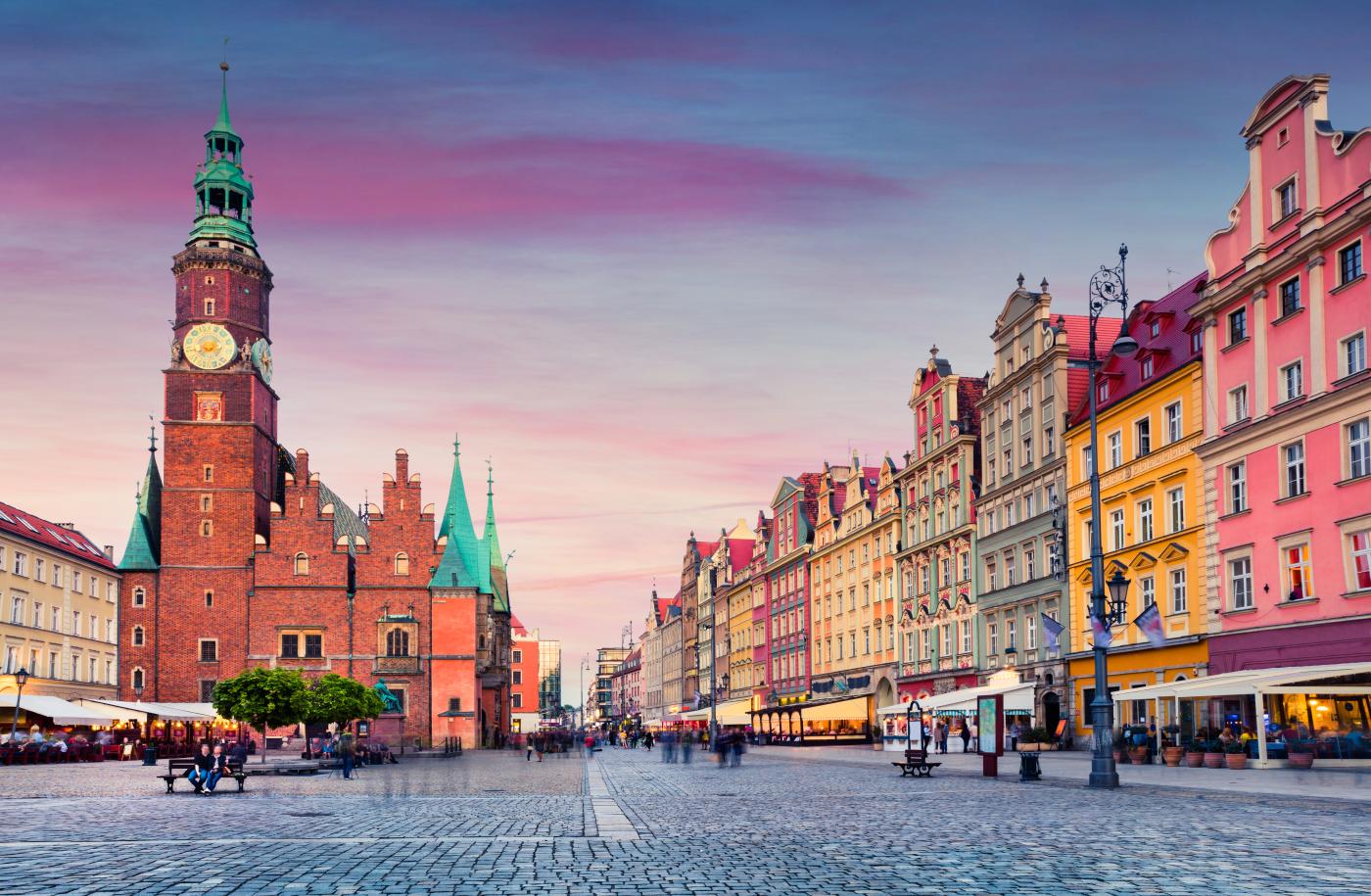
On display at the URBACT City Festival
The URBACT City Festival is not your standard conference. Rather than just listening to high-level presentations and panel discussions, it is all about showing sustainable urban development in action. Over the three days, there will be a series of site visits to give participants a first-hand glimpse of Wrocław’s involvement in community-led green revitalisation and lessons learnt along the way.
Good Practices, Action Planning Networks, UNESCO heritage sites…oh my!
In the second half of 2024, URBACT launched an open call for Good Practices. Selected practices must address an urban challenge, but all of them must be adaptable to other urban contexts. Three Wrocław practices were selected as part of a new batch of 116 Good Practices. During the URBACT City Festival, participants will have a chance to visit and learn about these practices. Below is a brief synopsis of the three practices, so you can update your agenda, depending on your particular interests:
• Discover an effective model for funding grassroots cultural projects and initiatives with Microgrants. This practice is unique because it brings the city and community organisations together to coordinate micro-financing through annual open calls for grants open to individuals and local groups.
• Walk through the Wrocław Urban Farm. For this practice, Wrocław put a spin on urban farming to tackle both social exclusion and pollution. This inclusive urban farming initiative brings together local organisations, municipal units and businesses, while also involving at-risk individuals (e.g. seniors, the socio-economically vulnerable, etc.). It is also worth mentioning that, through this practice, the farm supplies vegetables to public nurseries.
• See how an abandoned historic industrial site can be transformed into a vibrant cultural centre. The Czasoprzestrzeń Culture Centre – previously the Dąbie tram depot –provides a space for members of the community to host concerts, expositions, workshops and other gatherings, bringing together students, artists, social leaders, local organisers, and more. It hosts up to 300 000 people a year for different events in the space. During the Czasoprzestrzeń Culture Centre visit, participants will also visit a community garden.
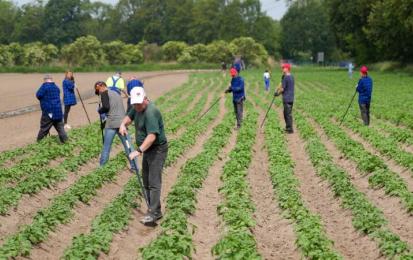
| 
| 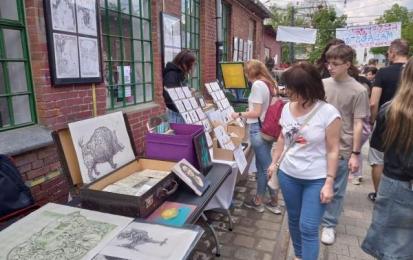
|
“We hope that our good practices will create transfer networks and be shared with other locations to contribute to the development of better places for the inhabitants of other European cities. We also want to take advantage of the good practices of other cities that will be discussed during the URBACT Festival and implement them in our conditions, drawing on proven patterns that successfully operate elsewhere.” – Joanna Gańcza-Pawełczyk, Senior Specialist at the Revitalisation Unit of the Municipality of Wrocław and GreenPlace project coordinator.
On 10 April, participants will also come together at this venue to celebrate the close of the 2025 URBACT City Festival at the final party.
Wrocław's Popowice depot will also be a site visit destination. This is the location of a planning for green initiative, whereby city practitioners are giving abandoned urban spaces a new purpose, with environment-friendly solutions. These types of projects involve processes like brownfield regeneration, green infrastructure and other green solutions to increase biodiversity, protect habitats and integrate climate adaptation solutions. Through the GreenPlace Action Planning Network (2023-2025), Wrocław works with nine other European cities to develop plans for managing and revitalising under-used land, spaces and buildings through community engagement.
A particular point of achievement is the network’s participatory approach, which is founded on community building and engagement in decision-making for green revitalisation.
“The revitalised Popowice Depot will be a place that combines history with the future, tradition with modernity, functionality with ecological solutions, and also promotes civic activity and participation. The goal is to create a space that will be teeming with life, thus enriching Wrocław as an open, sustainable and friendly city for both current and future generations.” – Joanna Gańcza-Pawełczyk, Senior Specialist at the Revitalisation Unit of the Municipality of Wrocław and GreenPlace project coordinator.
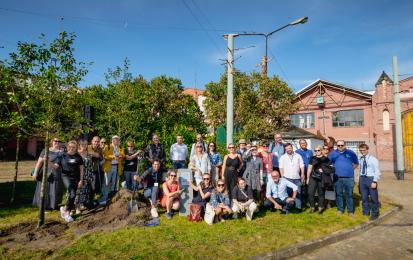
| 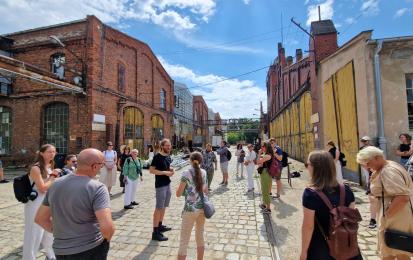
|
Explore the capital of Lower Silesia
You won’t have a lot of downtime during the URBACT City Festival, but there are a few other tourist destinations that you won’t want to miss during your time in Wrocław.
Starting with one of the URBACT City Festival venues, Wrocław Centennial Hall is a UNESCO World Heritage Site. Other historical landmarks include the Main Market Square, Cathedral Island, the Wrocław Opera, the National Museum.

| 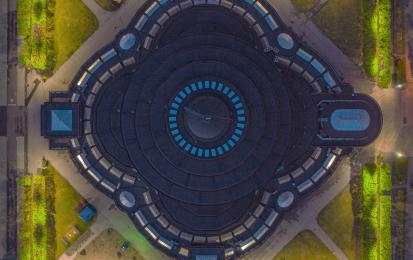
|
While going from place to place, be on the look-out for Wrocław’s dwarfs – there are over 500 of them scattered around the city! Find out more about the story behind these enigmatic figures in this episode of the 99% Invisible podcast.
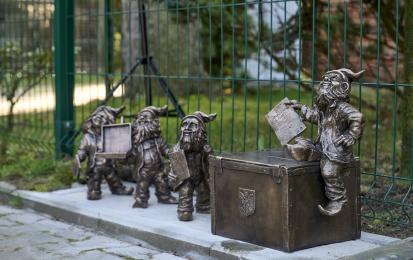
| 
|
Join us in Wrocław and say goodbye to the typical conference experience
There’s so much more we could say about what makes Wrocław a sustainable urban development destination. But we want to leave some suspense, so you can discover it for yourself in April.
Don’t miss the URBACT City Festival on 8-10 April – register now! You can also take a look here at the full programme. Whether you’re a long-standing member of the URBACT community or a first-time attendee, the City Festival in Wrocław offers an exceptional chance to connect, learn and inspire change across European cities.
By securing your spot you will also have a front-row seat to discover URBACT updates and upcoming opportunities:
• Learn about the 116 newly selected URBACT Good Practices, which have been added to our Good Practice database
• Get exclusive insights and start building partnerships for URBACT’s upcoming Call for Transfer Networks in April-June (as well as networking with other participants to consider your transfer opportunities)
Get the rundown on URBACT’s 2025 milestones here.


